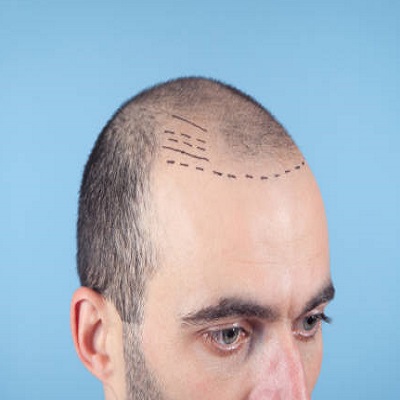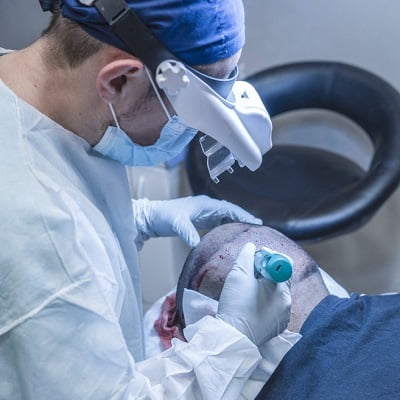
The decision to undergo a hair transplant is a significant and often life-changing choice for many individuals facing hair loss. While the prospect of regaining a full head of hair can be exciting, it is crucial to recognize the importance of consultation in the process of hair transplant in Islamabad. A consultation is the foundation for a successful and personalized hair restoration journey, providing the patient and the surgeon with essential information and insights.
This comprehensive blog post will explore why consultation is a vital step in the hair transplant process. So, take a moment and read the following details!
Understanding Individual Needs:
One of the primary reasons consultation is crucial in the hair transplant process is the need to understand each patient’s unique requirements and expectations. Hair loss is a complex issue with various underlying causes, from genetic factors to hormonal imbalances and lifestyle choices.
During a consultation, the surgeon can assess the patient’s specific hair loss pattern, the extent of hair loss, and any contributing factors. This personalized evaluation is essential for tailoring a treatment plan that addresses the individual’s unique needs, ensuring optimal results.
Educating Patients:
Hair transplant consultations are pivotal in educating patients about the entire process, from pre-procedure preparations to post-operative care. Knowledgeable patients are better equipped to make informed decisions about their treatment, and consultations allow surgeons to explain different hair transplant techniques, potential risks, and expected outcomes.
By fostering an open line of communication, patients can understand the procedure comprehensively, enabling them to set realistic expectations and make choices aligned with their goals.
Determining Candidacy:
Not every individual experiencing hair loss is an ideal candidate for a hair transplant. Factors such as overall health, the extent of hair loss, and donor hair availability play a crucial role in determining candidacy.
During a consultation, the surgeon can conduct a thorough examination and evaluate the patient’s medical history to assess their suitability for the procedure. This careful consideration ensures that the patient’s expectations align with the achievable outcomes of the hair transplant, minimising the risk of dissatisfaction post-surgery.
Setting Realistic Expectations:
One of the pitfalls of undergoing any cosmetic procedure is unrealistic expectations. Consultations serve as a platform for surgeons to discuss the potential outcomes realistically.
By presenting before-and-after photos of previous cases, explaining the limitations of the procedure, and discussing the timeline for visible results, surgeons can help manage patients’ expectations. This transparent communication is vital for building trust and ensuring that patients approach the hair transplant process with a realistic understanding of what can be achieved.
Customising Treatment Plans:
No two individuals are alike; the same principle applies to hair loss. A consultation allows surgeons to customize treatment plans based on each patient’s specific needs and preferences.
Different hair transplant techniques, such as FUT and FUE, may be more suitable for specific individuals depending on factors like hair type, scalp condition, and desired outcomes. Patients can collaborate with their surgeons through personalised consultations to tailor a treatment plan that aligns with their unique circumstances and goals.
Assessing Scalp and Hair Characteristics:
The success of a hair transplant relies heavily on the condition of the patient’s scalp and hair. During a consultation, surgeons can assess the quality of the donor’s hair, the density of the existing hair, and the overall health of the scalp.
This evaluation is critical for determining the procedure’s feasibility and identifying potential challenges that may affect the outcome. By addressing these factors during the consultation, surgeons can develop strategies to optimize the results and minimize the risk of complications.
Discussing Recovery and Aftercare:
A comprehensive consultation is not limited to pre-operative discussions but encompasses the post-operative phase. Surgeons can use this opportunity to outline the recovery process and provide detailed instructions for aftercare.
Patients gain valuable insights into what to expect during the healing period, including potential discomfort, timeline for hair growth, and any restrictions on activities. Clear communication about post-operative care ensures that patients are well-prepared for recovery, promoting a smooth and successful outcome.
All Summed Up!
In conclusion, the importance of consultation in the hair transplant process cannot be overstated. It serves as a foundation for understanding individual needs, educating patients, determining candidacy, setting realistic expectations, customising treatment plans, assessing scalp and hair characteristics, discussing recovery and aftercare, addressing concerns, and building trust and rapport.
A well-conducted consultation at SKN Cosmetic Clinic Islamabad ensures that the patient and the surgeon are on the same page, fostering a collaborative and informed approach to hair restoration. As individuals embark on their hair transplant journey, embracing the consultation process is vital to achieving natural and satisfying results.









